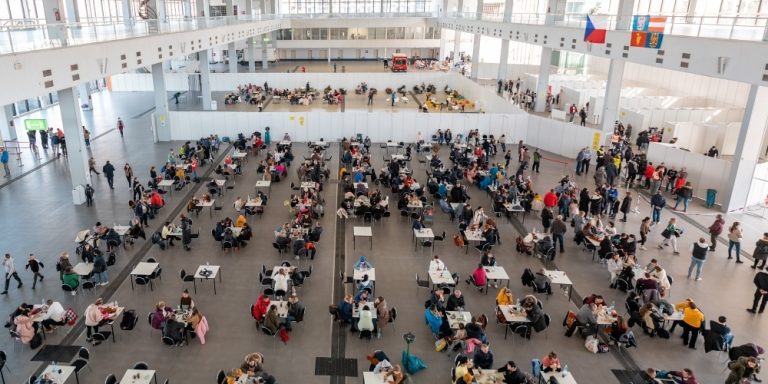Relative to the population, the Czech Republic is hosting the highest number of people with temporary protection status of all EU states. Credit: JMK.
Brussels, Aug 10 (CTK) – The Czech Republic is the EU’s third most common destination for people from Ukraine seeking refuge from the Russian war, and hosted the highest number of refugees with temporary protection status per capita as of the end of June, according to data released yesterday by Eurostat. However, separate data indicates that up to 70% of these refugees are living below the poverty line.
Almost 4.07 million people who left Ukraine because of the Russian invasion had temporary protection status in the EU at the end of June. 349,140 of these were living in the Czech Republic, making it the third most common destination for Ukrainian refugees, after Germany (1,133,420) and Poland (977,740).
Compared to the end of May, the number of Ukraine refugees in the EU increased by 45,800 (1.1%). The largest increases were in Germany, the Czech Republic, and Ireland. In the Czech Republic, the increase was 2.7%, or 9,050 people.
Relative to the population, the Czech Republic is hosting the highest number of people with temporary protection status of all EU states (32.2 per 1,000 inhabitants at the end of June), followed by Poland (26.6), Estonia (25.8), Bulgaria (24.9), and Lithuania (24.7), compared to an EU average of 9.1.
However, according to separate data released by the PAQ Research agency, as part of the Voice of Ukrainians project, seven in ten of Ukrainian refugees in the Czech Republic are living below the income poverty line; although 67% of adult refugees have jobs, up from 45% one year ago, they are usually low waged.
Two-thirds of Ukrainian workers in the Czech Republic are earning less than CZK 150 per hour after tax, and nearly three-fifths of employed Ukrainians have jobs that do not correspond to their qualification level.
The respondents most often mentioned the Czech language as the biggest barrier to finding a good job, followed by lack of recognition of their qualifications and a lack of nurseries for their children.
The PAQ researchers’ recommendations included intensifying Czech language courses, providing assistance in finding suitable jobs, and carrying out workplace inspections. They also argued that without amendments to the upcoming changes to refugees’ benefits, the situation will deteriorate further.
The Voice of Ukrainians project monitors the situation of the people who arrived in the Czech Republic last year, in terms of work, housing, education, income, knowledge of Czech and integration. PAQ Research and the Institute of Sociology at the Czech Academy of Sciences are collaborating on the research, which is supported by the United Nations Children’s Fund (UNICEF) and the Ministry of Labor and Social Affairs.
The survey has been conducted six times so far, most recently in June, with the participation of 1,425 households with 3,789 refugees from Ukraine.







